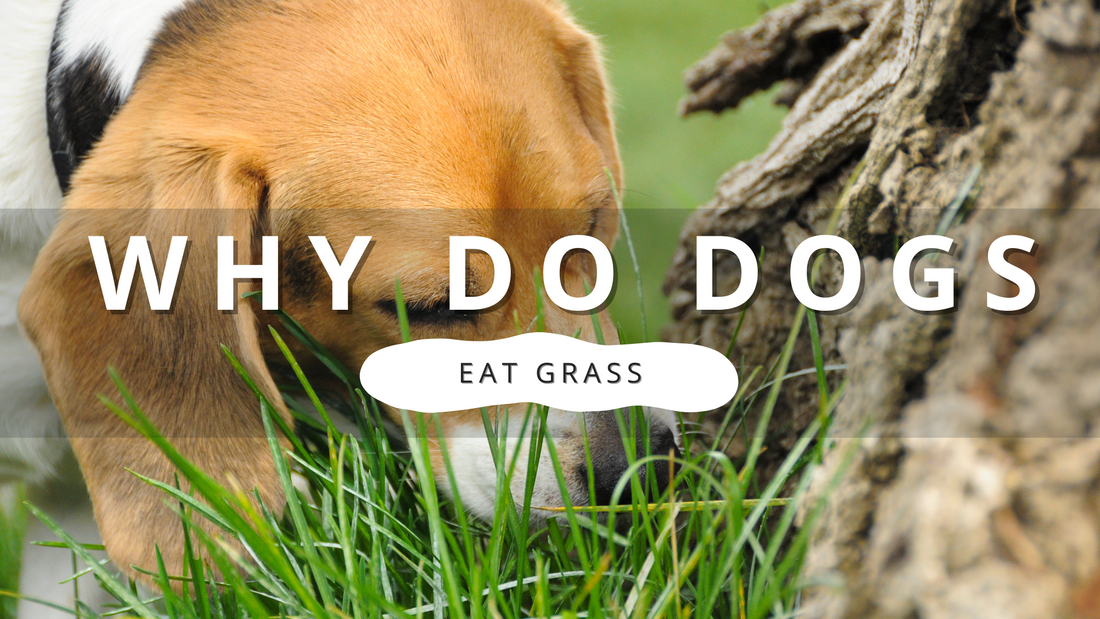
Have you ever seen your dog happily chomping on grass? It's a surprisingly common behavior that often leaves dog owners puzzled. While it might seem unusual, there are various reasons why our furry friends engage in this grass-munching habit. Let's delve deeper into the world of dog eating grass and uncover the truth behind this common canine behavior.
Is It Normal for Dogs to Eat Grass?
The short answer is yes! In most cases, eating grass is a perfectly normal canine behavior. Studies have shown that a significant percentage of dogs eat grass regularly without any ill effects. However, excessive or persistent grass-eating could indicate an underlying issue that warrants attention. It's always best to monitor your dog's habits and consult your veterinarian if you have any concerns.
5 Reasons Why Your Dog Might Be Eating Grass
1. Upset Tummy
Grass contains fiber, which can act as a natural antacid, soothing an upset stomach and aiding digestion. If your dog is experiencing vomiting or diarrhea along with grass eating, it's likely due to a digestive issue. Some experts believe dogs instinctively eat grass to induce vomiting and relieve nausea.
2. Boredom Buster
Just like us, dogs can get bored! Munching on grass might be a way to pass the time and satisfy their natural urge to chew. If your dog seems bored, try offering more mental and physical stimulation through toys, puzzles, interactive games, and increased exercise.
3. Nutritional Deficiency (Rare)
In rare cases, grass eating might indicate a nutritional deficiency, particularly a lack of fiber. However, a well-balanced diet should provide all necessary nutrients. If you're concerned about your dog's diet, it's worth consulting your vet for a checkup.
4. Instinctual Behavior
Dogs are descendants of wolves, who were omnivores and consumed both meat and plant matter. Eating grass could be a leftover instinct from their wild ancestors, a way to supplement their diet with essential nutrients.
5. Taste and Texture
Some dogs simply enjoy the taste and texture of grass! The fresh, slightly sweet flavor and the satisfying crunch might be appealing to them.
When Grass Eating Becomes a Concern
While occasional grass munching is usually harmless, here are some signs that warrant a vet visit:
- Excessive grass eating
- Vomiting or diarrhea
- Lethargy or loss of appetite
- Changes in stool consistency or color
- Other signs of illness
How to Prevent Excessive Grass Eating
- Provide a balanced diet: Ensure your dog's diet is complete and balanced to avoid any deficiencies. Consult your vet for specific recommendations.
- Regular exercise: A tired dog is less likely to turn to grass out of boredom. Aim for daily walks and playtime.
- Mental stimulation: Offer puzzle toys, interactive games, training sessions, and new experiences to keep your dog's mind engaged.
- Offer safe alternatives: If your dog seems to crave grass, try offering dog-safe herbs or vegetables like parsley or carrots. You can also purchase grass-like treats specifically designed for dogs.
Key Takeaway
Understanding why dogs eat grass can help you better care for your furry friend. By providing a healthy diet, plenty of exercise, and mental enrichment, you can help minimize the urge to munch on grass and keep your pup happy and healthy. Remember, occasional grass eating is usually nothing to worry about. However, if you notice any concerning symptoms, don't hesitate to consult your veterinarian for advice.
XOXO,
EmTeam
EMPAWR is a community-powered lifestyle dog brand with the mission to empower and inspire the next generation of dog owners to celebrate dog's individuality and personality. Explore our high-quality, jewelry dog ID tags, dog collars, dog leashes, dog bandanas and more at www.EMPAWR.com.


